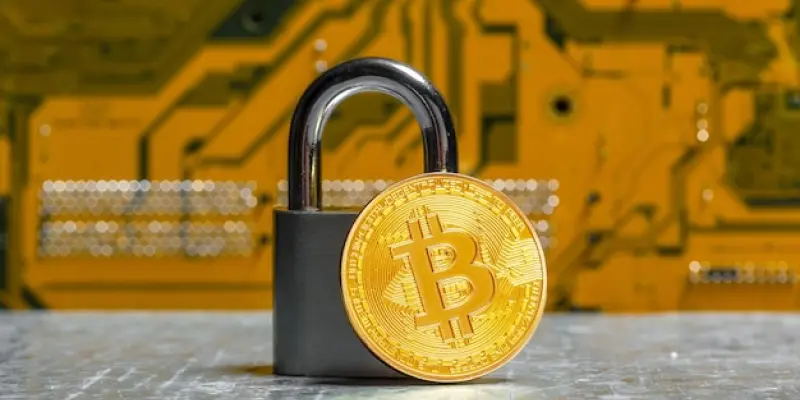Coinbase, one of the most prominent names in the cryptocurrency exchange sector, recently faced a substantial cyberattack that has reverberated across the digital finance world. The breach showcased vulnerabilities within the platform’s international customer support framework, which hackers exploited to access critical customer information such as names, addresses, phone numbers, masked Social Security numbers, and transaction histories. Affecting approximately 1% of the platform’s expansive user base, estimated at 97,000 individuals, this incident exemplifies the persistent threats confronting financial institutions reliant on digital infrastructure. The incident underscores the prevailing dangers of social engineering tactics, which cybersecurity experts estimate account for a significant majority of cyberattacks. Instead of succumbing to the demands of a $20 million ransom, Coinbase opted for a proactive stance by offering the same amount to anyone providing information that leads to the apprehension and conviction of the assailants. This move emphasizes Coinbase’s firm commitment to fighting cybercrime and highlights the immense financial and reputational risks posed by such breaches, potentially costing the company upwards of $400 million.
Coinbase’s Multifaceted Security Strategy in Action
Measures to Counteract Immediate Security Challenges
In addressing the cyberattack, Coinbase swiftly implemented a series of strategic measures to contain the situation and strengthen its defenses against future threats. These actions included terminating the employment of staff members implicated in the breach, instituting rigorous fraud-detection protocols, and transitioning certain customer support operations to a new facility located within the United States. Such initiatives signify a pivotal shift designed to safeguard Coinbase’s operations and bolster its security posture in a rapidly evolving digital environment.
Moreover, the company’s decision to establish a domestic hub for its support operations aims to reduce the risk of future breaches and enhance oversight mechanisms. This calculated approach reflects an acknowledgment of the importance of local oversight and robust security protocols in mitigating risks and addressing vulnerabilities inherent in international operations. These actions will serve as a blueprint for financial entities striving to shield their operations from sophisticated cyber threats.
Broader Implications and Industry Reactions
The cyberattack on Coinbase has sparked widespread discussion within both the technological and financial sectors, illuminating the pressing need for robust cybersecurity measures across the board. Industry stakeholders now recognize that safeguarding customer data and ensuring system integrity must transcend individual organizational boundaries and become a collective priority. This recognition has catalyzed a broader movement urging stakeholders to collaboratively innovate and apply adaptive security measures to preemptively address cyber threats and protect sensitive information.
The breach has also prompted reflections on the broader implications for consumer trust in financial technology, with analysts projecting a potential increase in demand for enhanced personal data protection and transparency measures. This newfound urgency surrounding cybersecurity arises as digital platforms become integral to daily financial transactions, accentuating the necessity for fortified defenses. The incident at Coinbase serves as a crucial reminder of the ever-evolving nature of cyber threats and the corresponding need for constant vigilance and adherence to industry best practices.
Navigating Regulatory Landscape and Market Recognition
Ongoing Regulatory Challenges and Resolutions
Amidst the cyber incident, Coinbase finds itself simultaneously grappling with regulatory scrutiny as it addresses a pending investigation by the Securities and Exchange Commission (SEC). This inquiry, tracing back to previous administrative periods, centers around alleged misreporting of user metrics, a matter Coinbase is keen to expeditiously resolve. The convergence of a major security breach alongside regulatory challenges underscores the multifaceted pressures faced by Coinbase as it navigates its trajectory within the cryptocurrency ecosystem. Coinbase’s proactive cooperation with regulatory bodies and its commitment to achieving a resolution demonstrate its dedication to upholding ethical business practices and adherence to institutional standards. Additionally, the company’s transparent communication regarding the ongoing investigation reflects a broader industry trend toward prioritizing accountability and fostering trust within the marketplace. Such efforts not only assure stakeholders but also solidify Coinbase’s standing as a reputable entity in the evolving regulatory landscape.
S&P 500 Inclusion: A Testament to Resilience
In an impressive juxtaposition of challenges and achievements, Coinbase is poised to be included in the S&P 500, a testament to its operational resilience and market prominence. This impending milestone highlights the company’s capacity to navigate complex challenges while achieving recognition within financial markets. The inclusion signifies an acknowledgment of Coinbase’s influence within the broader financial landscape, reinforcing its role as a formidable player in cryptocurrency exchange.
With this achievement, Coinbase affirms its commitment to enhancing its industry standing through strategic advancements and market adaptation. This recognition serves as a significant motivator for other cryptocurrency entities aiming to establish themselves as credible participants in mainstream financial markets. The prospect of S&P 500 inclusion underlines Coinbase’s journey toward stability and growth amid a landscape marked by both opportunities and uncertainties.
Future Considerations and Industry Reflections
Coinbase, a leader in the cryptocurrency exchange field, recently encountered a major cyberattack, impacting the digital finance landscape significantly. This breach uncovered weaknesses in the company’s global customer support system, which attackers used to gain access to sensitive customer details, including names, addresses, phone numbers, masked Social Security numbers, and transaction records. Approximately 1% of Coinbase’s large user base, about 97,000 people, was affected, highlighting the ongoing threats faced by financial institutions relying on digital platforms.
The incident highlights the widespread dangers of social engineering, which cybersecurity specialists say contribute to most cyberattacks. Rejecting the demand for a $20 million ransom, Coinbase instead decided to offer the same amount for information leading to the capture and conviction of those responsible. This decision illustrates Coinbase’s robust dedication to combatting cybercrime and sheds light on the enormous financial and reputational threats posed by such incidents, with potential losses of over $400 million.

